
Unpacking Our Library
Unpacking our Library consists of a series of hybrid collective reading practices both digital and physical inhabiting the Archive Inventory library, in collaboration with accomplice libraries in Berlin. How do we inhabit a library collectively? How does a library become a medium for connecting readers’ trajectories, struggles and potential alliances? What are the strategies that collective readings set-up to create moments of exchange, solidarity and citizenship? The program engages with communal formats of readership – from workshops, reading groups, community libraries to reading clubs –, as well as with cultural practitioners, librarians, activists and artists. Each session put into play shared structures of archiving and reading, from digital collections, re-publications to translations and on-going investigations. By socializing collective models of library activations, the program collectively unpacks Archive’s library at its new home in Berlin. Each encounter fosters and nurtures a net of accomplices with whom to engage with in the long-term, weaving a format in which collaborations beyond the scope of this project are welcomed. The very word ‘accomplice’ stems from the Latin complicare which means to “fold, weave together” and bears the meaning of complexifying. By folding a network of accomplices, the program aims to create a kind of virtual publishing space, bringing together complex and multiple perspectives, a platform for research and a convivial web to collectively activate proposals of readership and archiving.
Unpacking our Library is a strain of Publishing Practices, core formation of Archive’s program, committed to an expanded idea of publishing, that triggers and holds a space for study, action and multisensorial gatherings. Publishing Practices is curated by Chiara Figone, Paz Guevara and Beya Othmani.
Activation #1
September 24, 2021
Taking as a starting point the pages of the feminist newspaper Kadinlarin Sesi (Women’s Voice), Pınar Öğrenci, artist and filmmaker, and Övül Ö. Durmuşoğlu, curator, writer, and educator, explore strategies of collective reading and library activations. While reading the archival material, they make connec- tions between the experiences of former generations of women and today’s artistic and cultural practices. Kadinlarin Sesi was a feminist journal featuring women’s voices and their struggles reaching up to 60 issues and a circulation of 30.000 copies. After being published in Turkey between 1975 and 1980, it was shut down by the mili- tary just before the coup d’état in 1980, together with the organization that was publishing it, İlerici Kadınlar Derneği (Progressive Women’s Association).
Kadınların Sesi was the first women’s newspaper that specifically dealt with the intersections of women’s issues and socialist struggles paving the way for the many periodicals that were going to flourish at the end of 1980s while the political tides in the country became invaded by neoliberal policies with the support of the military. Throughout the pages of the journal, headlines reflected the editors’ political agenda, grounded in socialist internationalism, their struggle towards emancipation, equality, and peace, and their ties to situated network of female solidarity, such as Housewives want to work; Fascism and the Chilean women; or Our rural women: labourer in the field, slave at home.
Many issues highlight the international trajectory of feminism and women’s struggle in Turkey, and the attention towards solidarity with women from all over the world, as it was clear that the struggle would only realize its goal through transnational approaches.A selection of issues of Kadinlarin Sesi / Women’s voice can be found in the Archive Inventory library and its complete digitisation can be found in the Social History Research Foundation of Turkey – TÜSTAV.
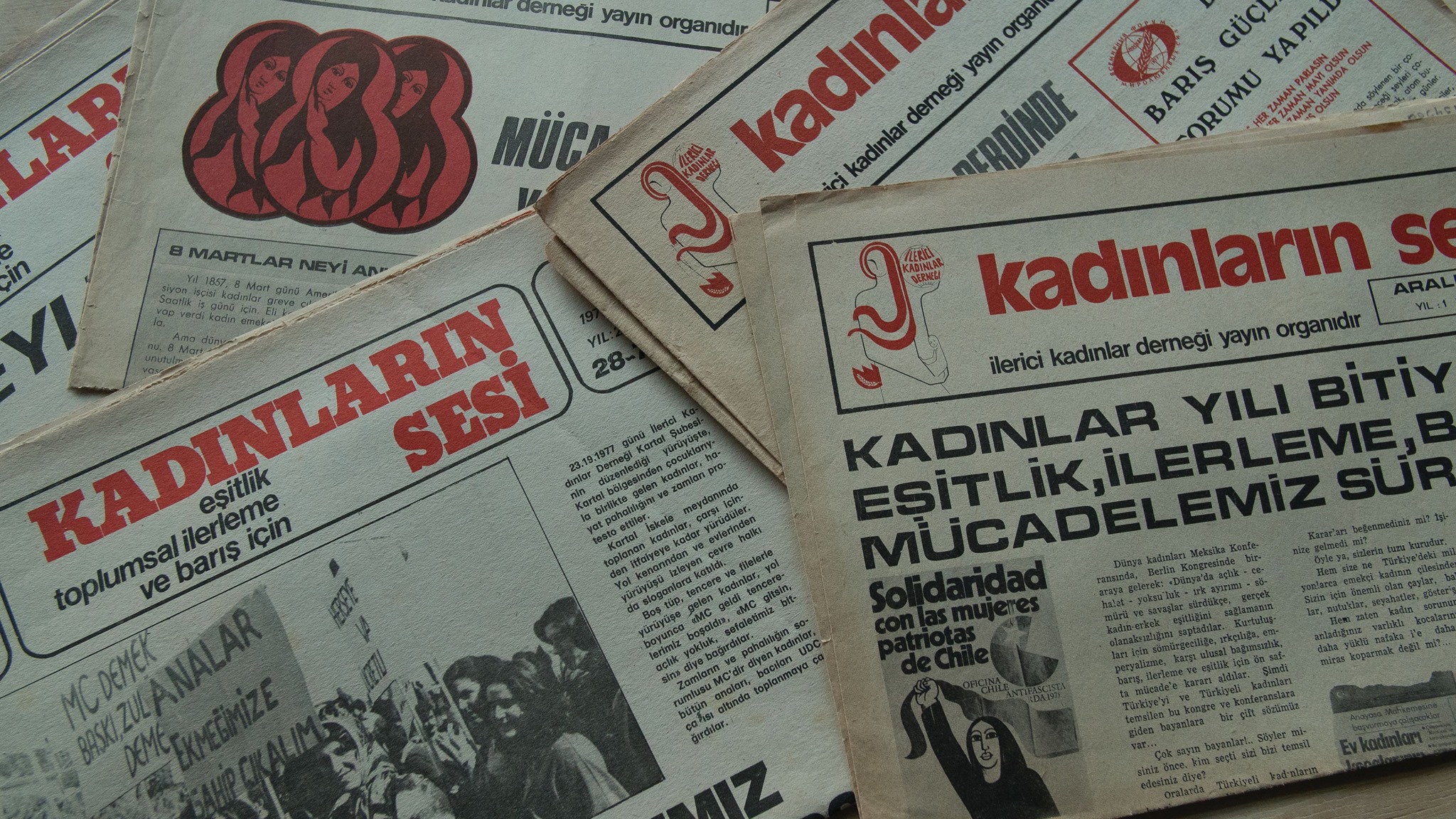
Pinar Öğrenci is an artist and filmmaker. She is the founder of the art initiative MARSistanbul and currently lectures at the Master Studies Raumstrategien at the Weißensee Kunsthochschule in Berlin. Her works are decolonial and feminist readings from the intersections of social, political and anthropological research, everyday practices, and human stories that follow agents of migration such as war, state violence, collective movements, as well as industrial and urban development projects. Her first documentary film “Gurbet is a home now” won Special Jury Prize of Documentarist Film Festival in Istanbul 2021. Her works have been exhibited widely at art institutions, most recently at Times Art Center Berlin (2021), Kunstraum Bethanien Kreuzberg (2020), 3rd Art Encounters Biennial (2019), Survival Kit, Riga (2019), 12th Gwangju Biennial (2018) and Athens Biennial (2018), among others.
From the archive
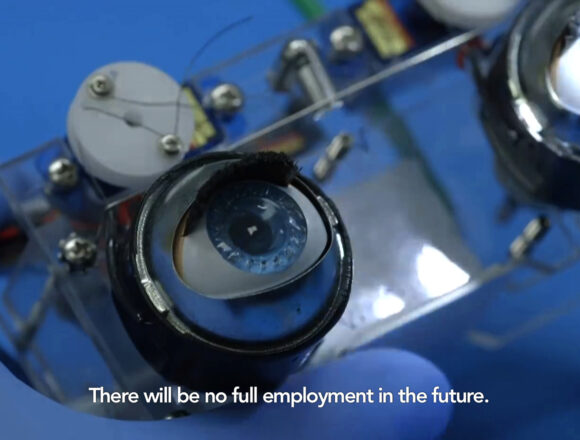
Unpacking our library, Activation #5
The fourth Unpacking our library activation invites Algerian writer and feminist Wassyla Tamzali to experiment and explore strategies of collective readings and library activations in conversation with the 𝘐𝘯𝘵𝘪𝘭𝘢𝘬 research team composed by artist Touda Bouanani, curator Lea Morin and publisher Maya Ouabadi.
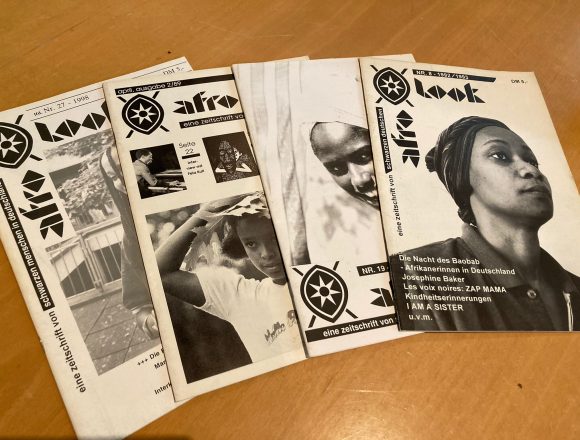
Unpacking our library, Activation #2
Ausgehend von den Praktiken der Community Bibliothek Each One Teach One (EOTO) e.V. in Berlin-Wedding und der legendären Afro-deutschen Magazins Afro-Look (1987-1999) werden Michael Götting, Autor, Bibliothekar und Kurator, und Ricky Reiser, Aktivistin, Redakteurin und autodidaktische Künstlerin, mit Strategien des kollektiven Lesens und Bibliotheksaktivierungen experimentieren.
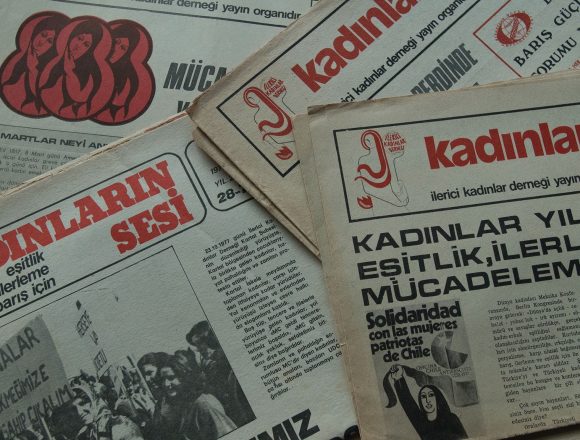
Unpacking our library, Activation #1
Taking as a starting point the pages of the feminist newspaper Kadinlarin Sesi (Women’s Voice), Pınar Öğrenci, artist and filmmaker, and Övül Ö. Durmuşoğlu, curator, writer, and educator, explore strategies of collective reading and library activations. While reading the archival material, they make connec- tions between the experiences of former generations of women and today’s artistic and cultural practices.
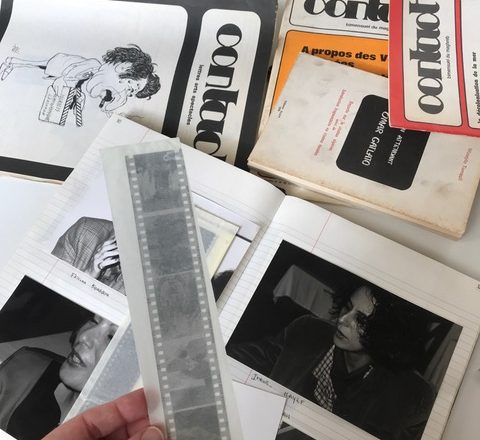
Unpacking our library, Activation #4
The fourth Unpacking our library activation invites Algerian writer and feminist Wassyla Tamzali to experiment and explore strategies of collective readings and library activations in conversation with the 𝘐𝘯𝘵𝘪𝘭𝘢𝘬 research team composed by artist Touda Bouanani, curator Lea Morin and publisher Maya Ouabadi.
